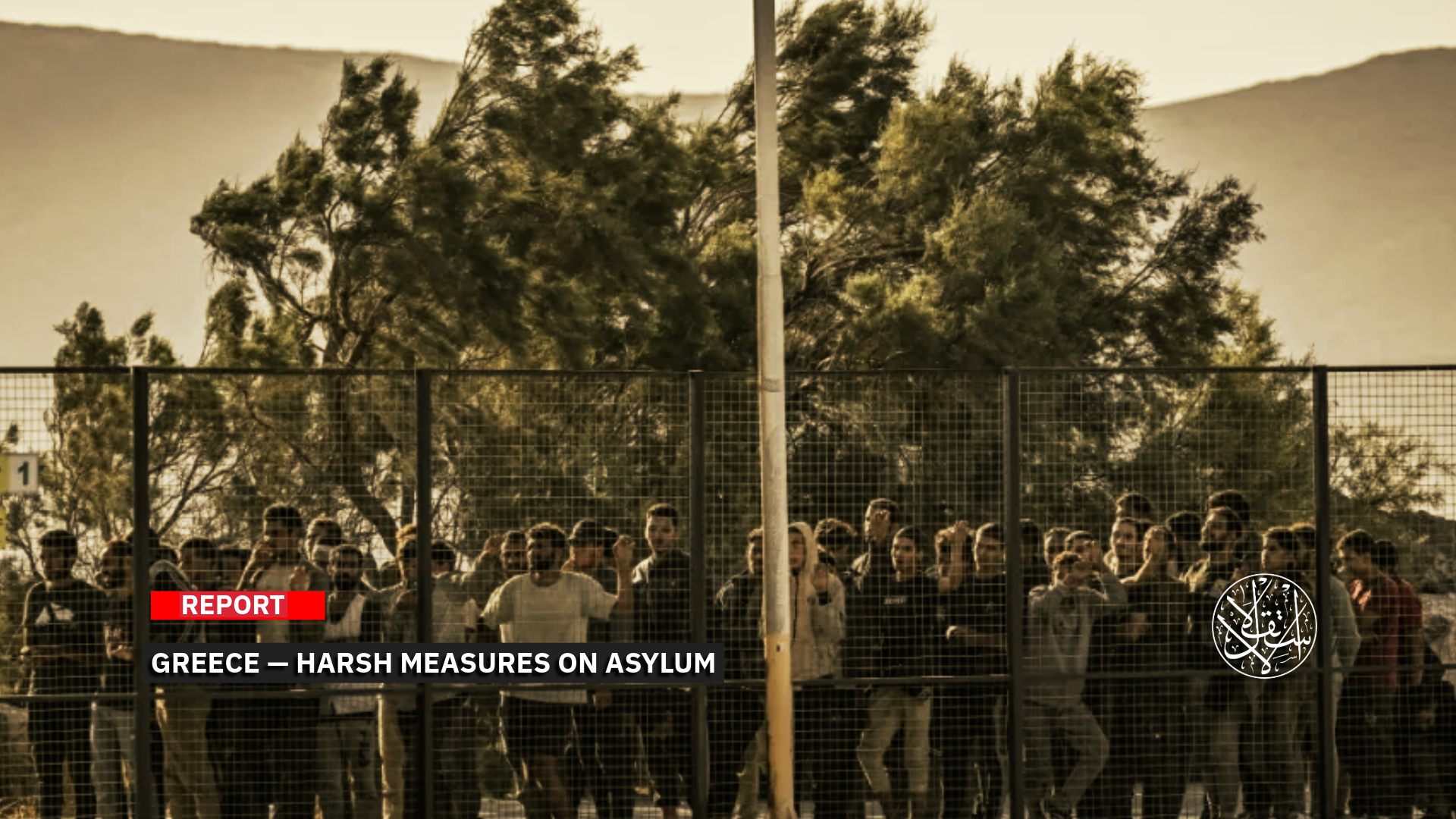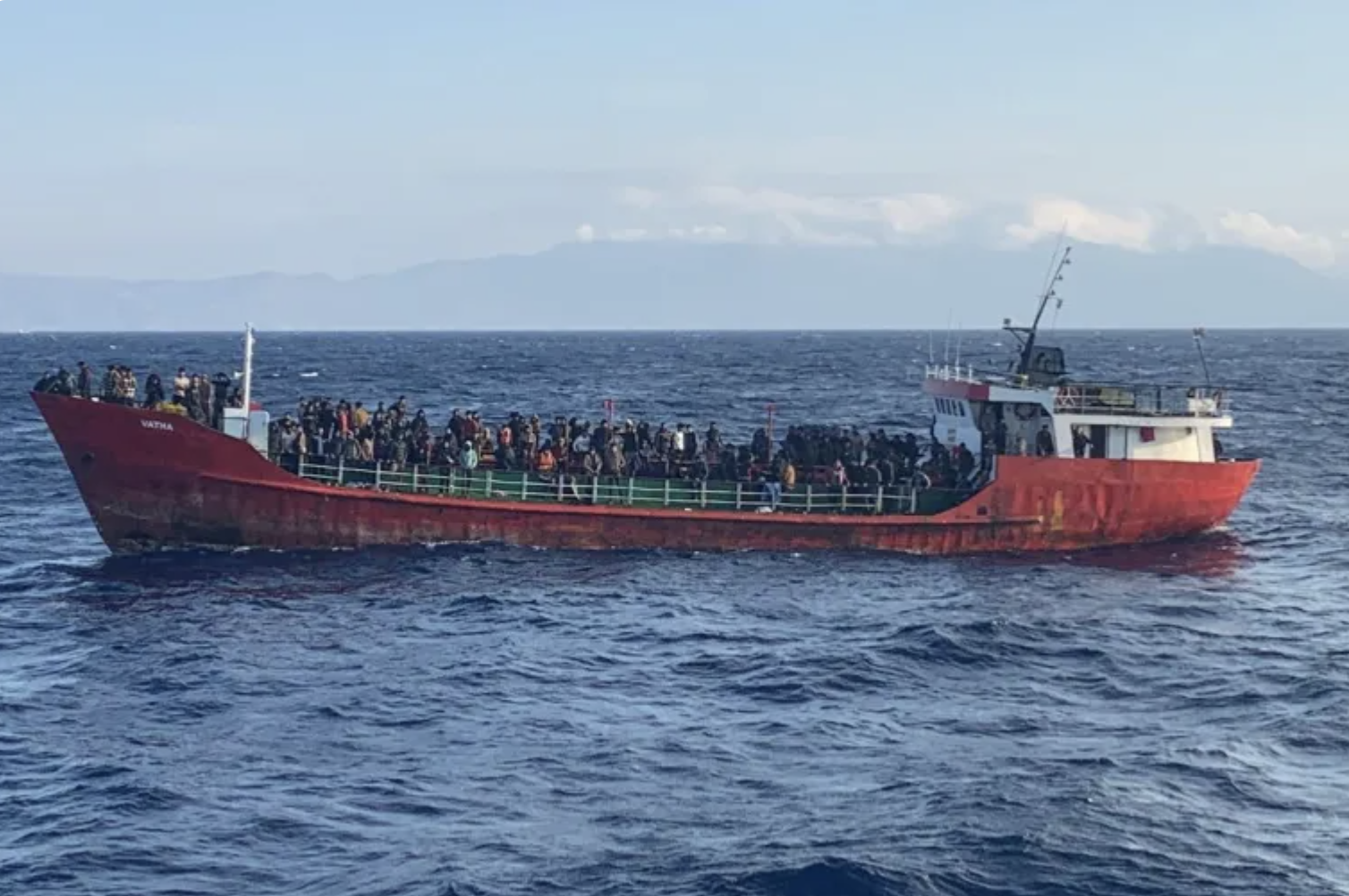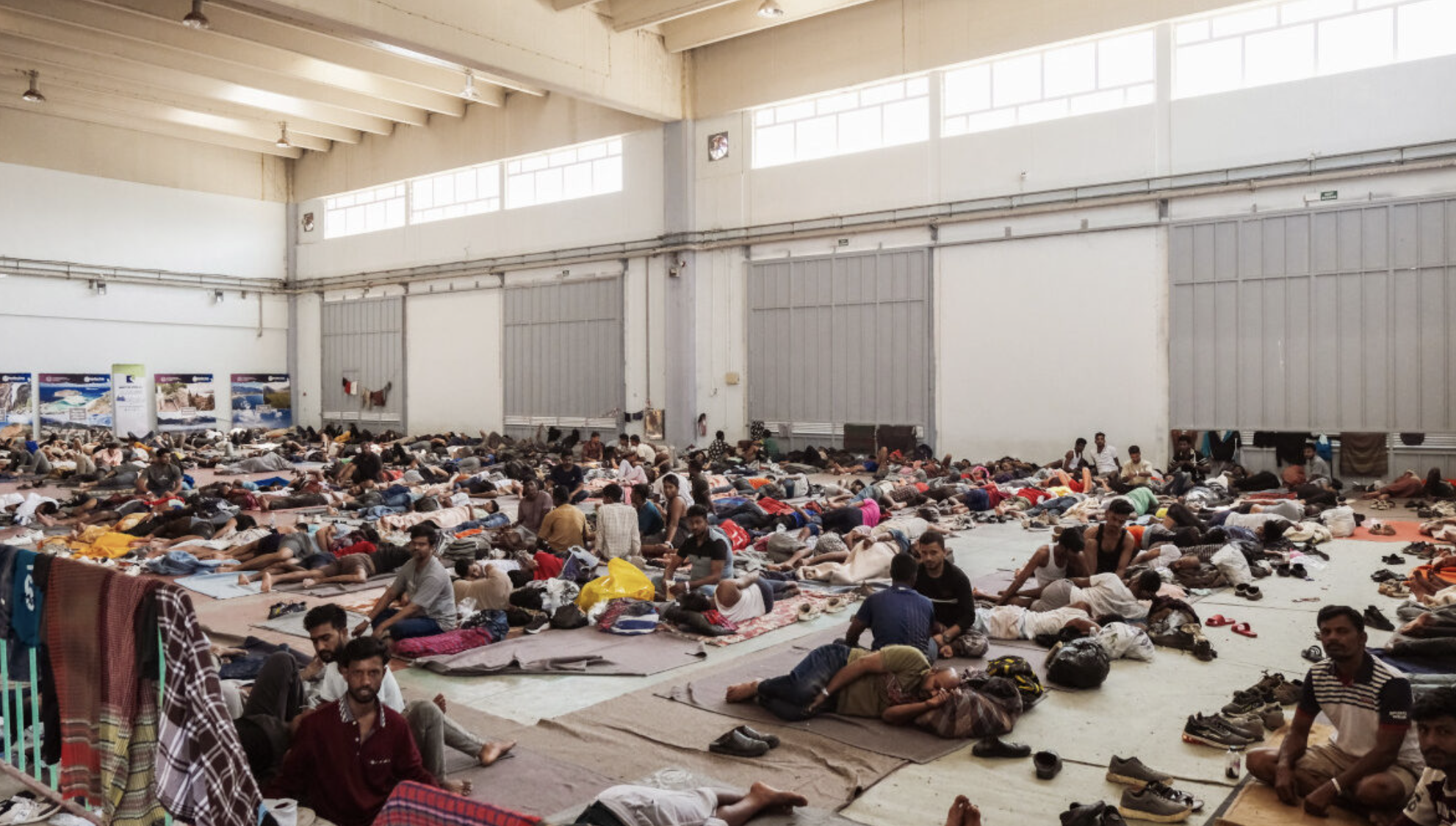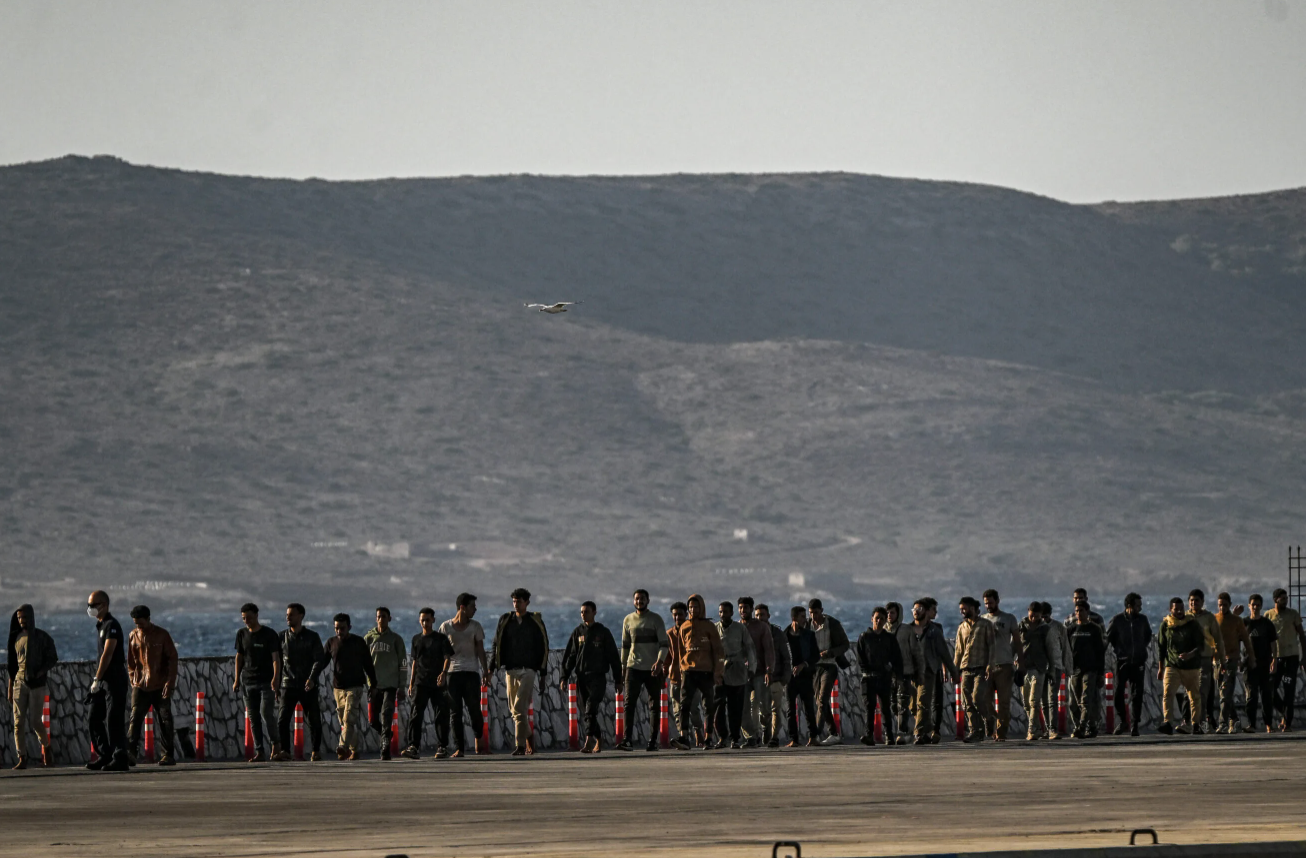5 Years in Prison: How Greece Is Shutting the Door on Refugees to Europe

A new law will punish asylum seekers who remain in Greece after their applications are rejected with five years in prison.
Greece has begun enforcing a tough and controversial policy aimed at shutting down a long-standing route used by irregular migrants to reach Europe after crossing the Mediterranean and setting off from Greek territory.
For years, Greece served as a key gateway for those hoping to reach the continent in search of a better life, far from the wars and hardships of their home countries in the Middle East, Africa, and Asia.

Greece and the Migrants
In a major escalation, Greece announced on July 11, 2025, that it would suspend asylum applications for three months for migrants arriving by boat from North Africa. The government cited a sharp increase in arrivals, which it described as an “invasion.”
The emergency measure, passed by a majority of 177 out of 293 lawmakers, allows authorities to detain asylum seekers in camps for up to 18 months.
Support for the bill came mainly from members of the ruling conservative party and the far-right. According to the Greek Ministry of Migration, more than 14,000 migrants arrived in the country in 2025 so far, with over 2,000 arriving in July alone—mostly from Libya.
Many of the new arrivals landed on Crete, one of Greece’s most popular tourist destinations, prompting backlash from local officials and those working in the tourism sector.
Greek Prime Minister Kyriakos Mitsotakis, who hails from Crete, told parliament on July 4: “Any migrant entering illegally will be arrested and detained.”
Migration Minister Thanos Plevris told Sky TV Greece on July 11 that the country cannot accept boats carrying 1,000 people a day, and announced a “strict review” of how Greece handles migration.
Describing the influx as a “North African invasion,” Plevris said the Ministry of Migration is not a hotel. People cannot just enter the country illegally, claim asylum, and receive aid, three meals a day, and shelter—all at the expense of Greek and European taxpayers.
According to Plevris, most of a recent group of 500 arrivals to Crete were young Egyptian men ineligible for asylum. “The message we are sending is clear: stay where you are. You are not welcome here, you are not entitled to international protection, and you will not blackmail Greece,” he added
“We were shown a plan in western Libya involving 3 million migrants. If anyone thinks we will allow that population to enter Europe, then we are talking about population replacement.”
“From now on, for those entering illegally, the path is either prison or departure,” Plevris said.
Prime Minister Kyriakos Mitsotakis echoed this in an interview with German tabloid Bild on July 11, saying: “We have made the difficult but absolutely necessary decision to temporarily suspend the examination process of asylum applications for those arriving by sea from North African countries.”
“This decision sends a clear message, leaving no room for misinterpretation, to human trafficking networks: Greece is not an open transit route. The journey is dangerous, the outcome uncertain, and the money paid to smugglers ultimately wasted.”
Roughly 8,000 migrants have arrived on Crete since the start of 2025, compared to 4,935 in all of 2024, according to the Migration Ministry.
The Greek government is now drafting new regulations as part of a broader crackdown, which will include a review of all benefits currently granted to asylum seekers. Even meals provided at reception and detention centers will be reassessed.
The Ministry is also working on new legislation that would criminalize remaining in the country after an asylum request has been denied. Under the proposed law, rejected asylum seekers who do not leave voluntarily could face up to five years in prison.

Legalizing Forced Deportation
In recent months, Greek authorities have stepped up their monitoring of migrant arrivals on the islands, aiming to detain them, process their asylum claims, or issue temporary travel permits—documents some later use to move on to other European countries and apply for asylum there.
This comes after the minister of migration and asylum announced in late October 2024 that Greece was pushing for stricter EU-wide migration policies in anticipation of a possible surge in arrivals due to the ongoing war in the Middle East.
The Greek government is now pushing to limit the choices of undocumented migrants who are not eligible for asylum to just two: either imprisonment or voluntary return to their home countries.
Syrian lawyer Mohammad al-Nawaf said this approach—especially the suspension of asylum processing—amounts to a direct violation of a basic human right, as it blocks access to asylum for people who may still be fleeing danger. “There are countries that remain unsafe and are officially recognized as such by both the UN and the EU,” he told Al-Estiklal.
“The only humane and lawful solution would be to ensure a proper reception system that includes registration, asylum interviews, and fair processing for everyone, regardless of how or where they enter the country—standards set under international and European law.”
He warned that suspending asylum procedures and forcing returns effectively legitimizes what is known as refoulement—the illegal practice of returning people to countries where they could face torture or serious harm—thus breaching key international treaties.
“What the Greek government is pursuing today, and what appeals to many other European countries tightening their asylum systems—like Italy and Germany—is turning the mere act of staying in Greece into a criminal offense,” al-Nawaf said. “It’s part of a broader strategy to slow migration across the Mediterranean and use rising migrant numbers as justification for increasingly harsh refugee policies.”

Harsh Measures
Greece’s decision to suspend asylum applications has drawn sharp criticism from human rights groups, who argue it violates international and EU law. Opposition parties within Greece have also condemned the move, calling it unconstitutional.
A day before the Greek parliament approved the measure, the UN High Commissioner for Refugees (UNHCR) expressed “deep concern” over the policy.
In a statement, the UNHCR emphasized that seeking asylum is a fundamental human right protected under international, European, and national law, and it applies to everyone—regardless of how they arrive or where they come from, even during periods of high migratory pressure.
The agency warned that returning individuals to a country where they may face threats to their life or freedom constitutes a violation of the principle of non-refoulement, and states cannot disregard this key principle of international law.
The International Rescue Committee also condemned Greece’s decision, calling it a clear violation of the right to seek asylum under both international and European law.
Al-Nawaf noted that such a suspension could discourage people from attempting to reach Greece, especially when faced with the possibility of paying smugglers large sums only to be met with harsh and inhumane treatment—such as being detained in camps for up to two years before their cases are even processed, or being transferred to remote facilities.
“Authorities are also reviewing all benefits previously granted to asylum seekers, including housing support, while assessing the overall cost of hosting each migrant.”
Al-Nawaf also pointed out growing European support for stricter migration control, noting that Greece has been among the backers of EU initiatives that link financial aid to African countries with their willingness to accept deported nationals or cooperate with voluntary return programs from Europe.
Despite these tightening measures, migrant crossings by sea continue. On July 14, 2025, a group of 36 migrants stranded on a beach on the Aegean island of Lesbos reported nearly drowning. A Frontex (European Border and Coast Guard Agency) vessel rushed to assist them but struck a coral reef and sank near the island. The crew—five Portuguese nationals and one Greek—was rescued.
Sources
- Hundreds of migrants moved to Greek mainland as Crete struggles with Libya arrivals
- Greece to adopt legislation against migrant ‘invasion’ from Libya
- ‘The path is prison or departure,’ says migration minister on asylum suspension law
- Greece Freezes Asylum Applications Amid 'Invasion' of Migrants from Libya [Arabic]
- He sticks to extreme rhetoric, blaming the Left [Greek]
- Ombudsman Raises Alarm: Migration Amendment Violates International and European Law [Greek]










